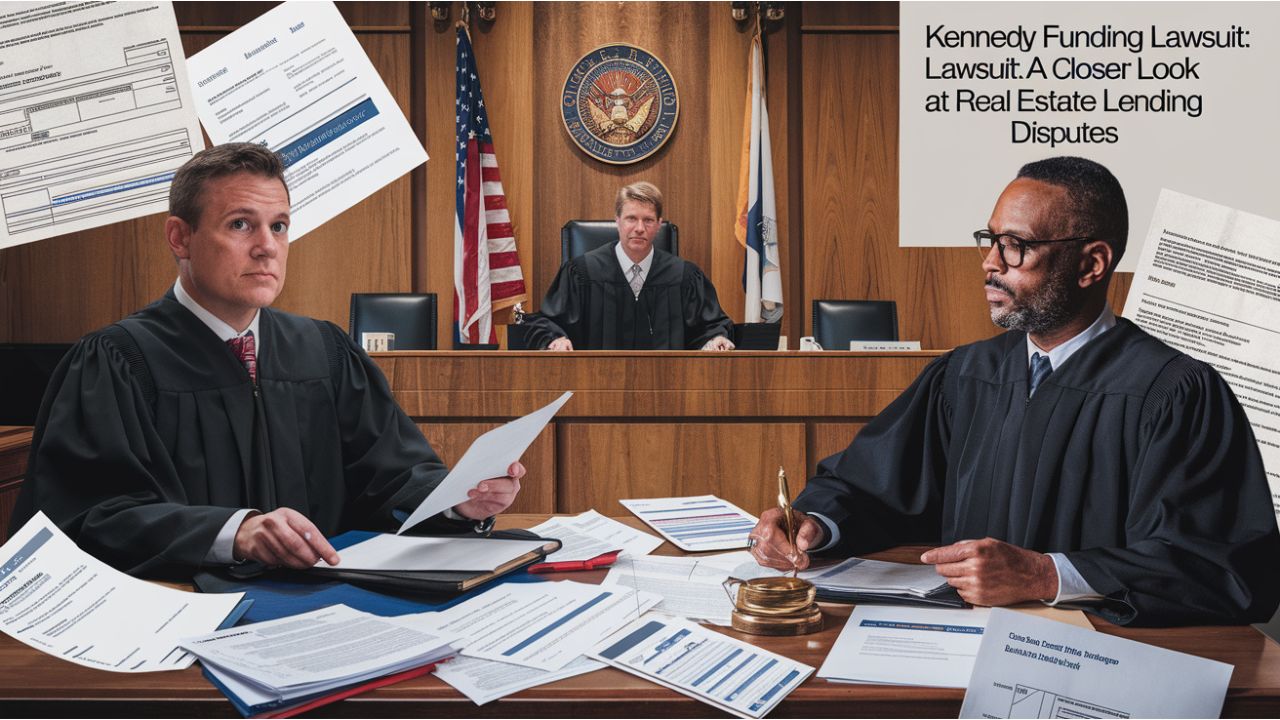In the complex world of commercial real estate financing, lawsuits involving lenders and borrowers are not uncommon, especially in high-stakes cases. One such case that has captured attention is the Kennedy Funding lawsuit, which highlights key issues in commercial lending, regulatory oversight, and the challenges faced by real estate investors. In this article, we’ll examine the details of the Kennedy Funding lawsuit, its implications for the real estate lending industry, and what this means for borrowers and lenders alike.
Understanding the Kennedy Funding Lawsuit
Kennedy Funding is a private direct lender specializing in commercial real estate loans, often focusing on bridge loans and financing options for borrowers who might not qualify for conventional funding. This New Jersey-based company has built a reputation for providing “hard money” loans and has a long-standing presence in the industry. However, like many lenders in the commercial space, Kennedy Funding has faced legal challenges over certain lending practices.
The Kennedy Funding lawsuit centers on allegations involving loan agreements, interest rates, and dispute over contractual obligations. While the specifics of the case vary by plaintiff, the lawsuit underscores important questions about transparency, borrower protections, and industry regulations.
Background on Kennedy Funding’s Business Model
To understand the Kennedy Funding lawsuit, it’s essential to look at the company’s business model and lending practices. Kennedy Funding primarily offers high-interest, short-term loans to real estate developers and investors who require fast access to capital. Often, these loans are necessary to bridge gaps in funding or to provide capital for projects that traditional lenders consider too risky. However, hard money loans like those provided by Kennedy Funding are often subject to high interest rates and strict repayment terms.
Kennedy Funding has established itself as a solution for “non-traditional” borrowers. Yet, this approach can sometimes lead to disputes, as borrowers may feel pressured by the high-interest rates and other contractual terms that come with hard money loans.
Key Issues in the Kennedy Funding Lawsuit
Several legal issues have surfaced in the Kennedy Funding lawsuit, each of which could set significant precedents for the industry. Here are some of the primary points of contention:
Loan Terms and Interest Rates
One of the main issues in the Kennedy Funding lawsuit involves the high-interest rates and fees associated with their loans. Many borrowers who seek financing from hard money lenders are in a position where traditional bank loans are inaccessible. However, the interest rates charged by Kennedy Funding have raised concerns about predatory lending practices, especially when borrowers encounter financial difficulties or delays in their real estate projects.
Contractual Obligations
In some cases, borrowers allege that Kennedy Funding’s loan agreements contain terms that are difficult to meet or understand. Disputes have arisen over repayment schedules, penalties, and default provisions. Borrowers have argued that certain clauses in the loan agreements are overly restrictive or ambiguous, leading to legal action when the loan terms are not fully met.
Regulatory Compliance and Borrower Protections
The Kennedy Funding lawsuit also brings to light the issue of regulatory compliance and borrower protections within the real estate lending market. Hard money loans exist in a space with fewer regulatory constraints compared to traditional lending, and this can sometimes create a gray area in terms of what is legally permissible. Borrowers who take out loans from private lenders may not have the same protections as those borrowing from a traditional financial institution, potentially increasing their vulnerability to unfavorable loan terms.
Impact of the Kennedy Funding Lawsuit on Commercial Real Estate Financing
The implications of the Kennedy Funding lawsuit reach far beyond the involved parties, offering lessons and possible changes for the broader real estate lending landscape. Here’s what the case could mean for commercial real estate financing:
Increased Scrutiny of Private Lenders
With heightened attention on cases like the Kennedy Funding lawsuit, regulatory bodies may push for greater oversight of private lenders, particularly those offering hard money loans. This could involve more stringent disclosure requirements, limits on interest rates, or clearer definitions of borrower rights. If such regulations are enacted, private lenders may need to adapt their practices to ensure compliance.
Borrowers’ Rights and Protections
The lawsuit could also lead to greater awareness and advocacy for borrowers’ rights in the private lending sector. Borrowers, particularly those in need of fast capital for real estate projects, may feel more empowered to scrutinize loan terms, negotiate with lenders, and even seek legal counsel before entering into agreements. An outcome in favor of the borrowers could pave the way for improved transparency and protections for borrowers in the future.
Potential Changes in Lending Practices
For lenders like Kennedy Funding, the lawsuit highlights the potential risks associated with aggressive loan terms and high interest rates. In the wake of such disputes, private lenders may reconsider their approach, possibly offering more flexible terms or developing loan agreements that are easier for borrowers to understand and fulfill. A shift in industry practices could ultimately benefit both borrowers and lenders, fostering a more sustainable lending environment.
Lessons for Borrowers Considering Private Lending Options
The Kennedy Funding lawsuit serves as a cautionary tale for borrowers seeking alternative financing options. Here are some tips for borrowers to consider before entering into a private lending agreement:
- Review Loan Terms Thoroughly: Understanding the fine print is crucial. Borrowers should be fully aware of interest rates, repayment terms, penalties, and any clauses related to default before signing an agreement.
- Assess Long-Term Viability: While hard money loans can be a quick solution, they often come with high costs. Borrowers should weigh the long-term impact of the loan on their project’s financial viability.
- Consult Legal and Financial Advisors: Engaging with legal and financial advisors can help borrowers better understand their obligations and identify any potential risks associated with the loan.
- Explore Alternative Financing Options: In some cases, it may be beneficial to explore other financing options or look for lenders who offer more favorable terms, even if it means a longer approval process.
Conclusion
The Kennedy Funding lawsuit highlights important issues in the commercial real estate lending market, including borrower protections, regulatory compliance, and the complexities of private financing agreements. As the case progresses, its outcomes may shape the future of private lending, potentially leading to increased scrutiny and new standards within the industry. For borrowers, the case emphasizes the need for careful consideration when pursuing alternative financing options and a thorough understanding of all loan terms and conditions.











